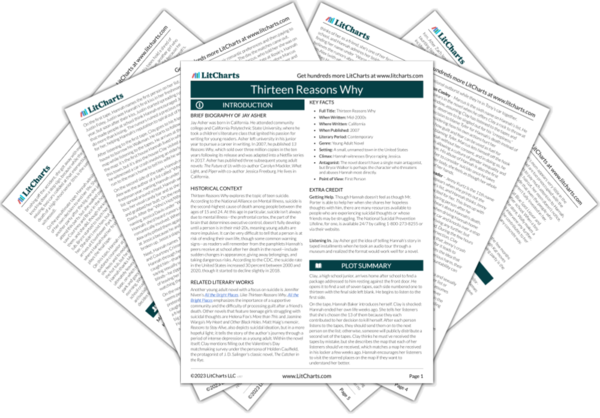Hannah describes the Oh My Dollar Valentine survey. The first part asked the participant to describe themselves; the second part asked them to describe what they were looking for in a match. Hannah realized as she filled hers out that she was describing a particular person at school.
Clay reflects on his answers and wishes he’d filled his survey out seriously, but he actually filled it out as the character of Holden Caulfield from
The Catcher in the Rye, which gave him a strange list of matches.
